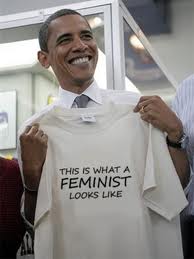My earliest memory of masculinity date to my childhood years in rural Shurugwi. I remember that whenever the family would gather (for weddings, funerals or Christmas) there would always come a time for men. Chests puffed, shoulders squared they would gather into my grandmother’s kitchen (funny the kitchen proprietor was rarely on the guest list). Seated around the fire, with the eldest of the Son (my father) at the head of the round room followed by his younger brother and so the sitting arrangement went. The array ended with the youngest recruits, my brothers, who sat on the ground near the door. It is always interesting to me to observe the level of power, authority and respect being packed in one room.
Feminists, activists and policy makers have contested this family council – or ‘dare’ as it called in my local language – on the basis it is almost always male dominated. Contentions and emotions arise because these ‘dare’ make binding decisions concerning all those in the room as well as the women outside taking away their agency. In this case masculinity, which is a cultural production of normative attributes of maleness become hegemonic because it exerts dominance over all others even other men (Cornell and Messerschmitt, 2005).
Not all masculinities are hegemonic and this I see in the actions of my brothers who would not dare try to make an exertion over the way I conduct my life but my father would. Individual men may not be hegemonic but in subscribing to systems like the ‘dare’ they become complicit to it and perpetuate a form institutionalised hegemonic masculinity.
It has been the preoccupation of development workers to get women into that room of power: more women on boards, more women in parliament and more women in councils is still a popular rhetoric.
One woman has been outstanding and down right ingenious in challenging the segregation and hegemony of masculinity by starting her own ‘dare’. Rebecca Lolosoli is the matriarch of Umoja-Uaso a women-only Samburu village in Kenya. After suffering at hands of hegemonic masculine societies (the violent kind) she with other women decided to band together and start a village of their own were women call the shorts and men are not allowed to stay. The village has thrived as a tourist destination for traditional Kenyan jewellery and as a human rights center – as the women do not allow their girl children to be circumcised. The village even boasts of its own website. These gains have been pinched by the fact that the men they left behind often attack the village or compete on the nearby road for tourist visits.

Clearly this is an extreme way of dealing with problematic hegemonic (that rhymes!) masculinity. Its future sustainability is a cause for concern though. Cornwall et. al (2011) suggest another route: engage with masculinity, yes engage with it. Because hegemonic masculinity is not a universal phenomenon among men; those sitting near the floor near the door render themselves allays in the power struggle as they fall victim to hegemony as do women.
I must say though that I am not sold out on the male feminists issue. I still have issues of how one would willingly give up privilege of sitting in the centre of power. Until the day I buy into the idea I remain sold on Rebecca Lolosoli’s solution. Regardless of the threat of violence, sabotage and loss of regular sexual intercourse I am still optimistic and remain inspired by the success of Umoja. I return home to Zimbabwe in approximately eleven months, in time for Christmas 2014. Next year I plan to be a trendsetter in my own family. While the men gather round and get into their exclusive ‘dare’ club as usual, I will gather my own female pose` and start a ‘dare’ of my own stamping my own sign of independence: NO MEN ALLOWED!


Leave a comment